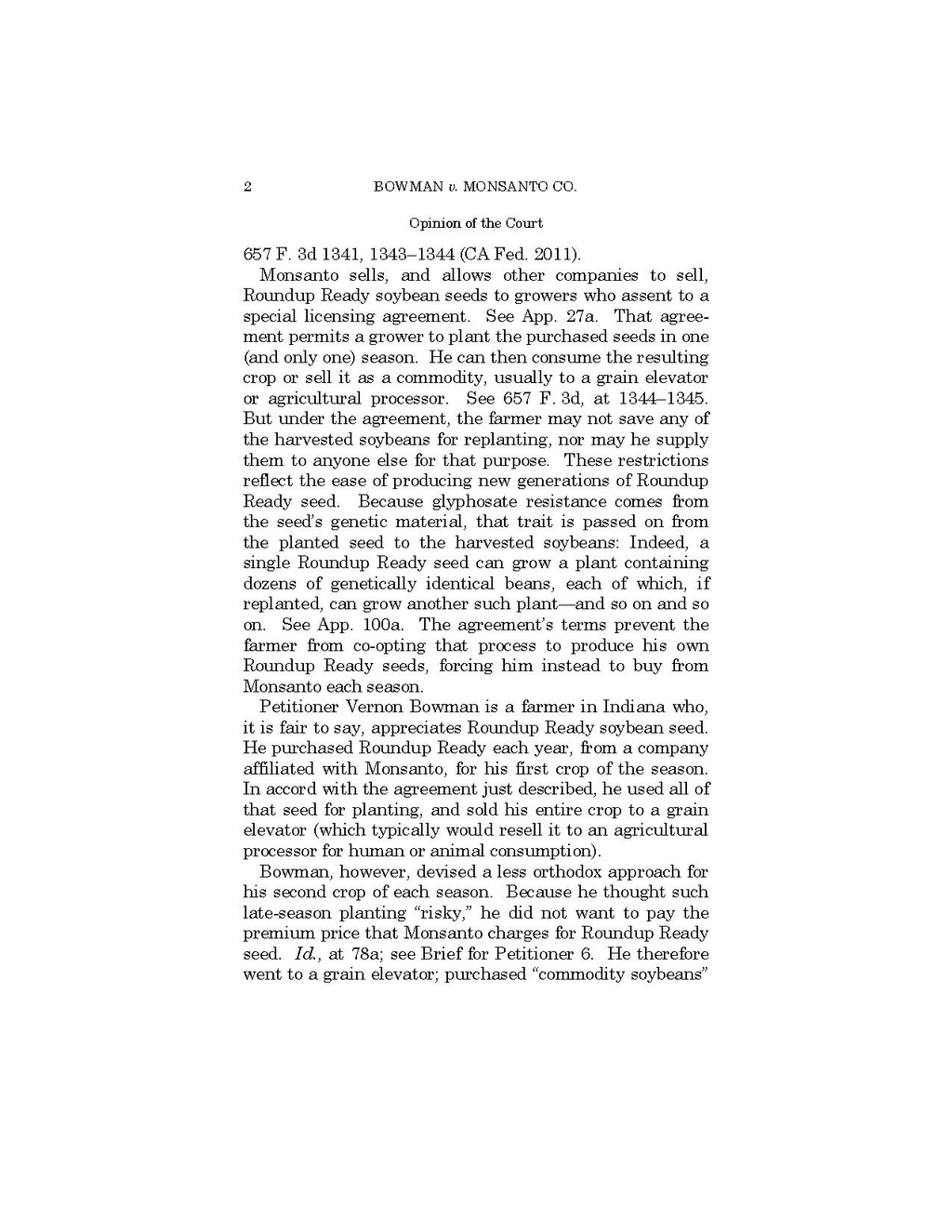Opinion of the Court
657 F. 3d 1341, 1343–1344 (CA Fed. 2011).
Monsanto sells, and allows other companies to sell, Roundup Ready soybean seeds to growers who assent to a special licensing agreement. See App. 27a. That agreement permits a grower to plant the purchased seeds in one (and only one) season. He can then consume the resulting crop or sell it as a commodity, usually to a grain elevator or agricultural processor. See 657 F. 3d, at 1344–1345. But under the agreement, the farmer may not save any of the harvested soybeans for replanting, nor may he supply them to anyone else for that purpose. These restrictions reflect the ease of producing new generations of Roundup Ready seed. Because glyphosate resistance comes from the seed’s genetic material, that trait is passed on from the planted seed to the harvested soybeans: Indeed, a single Roundup Ready seed can grow a plant containing dozens of genetically identical beans, each of which, if replanted, can grow another such plant—and so on and so on. See App. 100a. The agreement’s terms prevent the farmer from co-opting that process to produce his own Roundup Ready seeds, forcing him instead to buy from Monsanto each season.
Petitioner Vernon Bowman is a farmer in Indiana who, it is fair to say, appreciates Roundup Ready soybean seed. He purchased Roundup Ready each year, from a company affiliated with Monsanto, for his first crop of the season. In accord with the agreement just described, he used all of that seed for planting, and sold his entire crop to a grain elevator (which typically would resell it to an agricultural processor for human or animal consumption).
Bowman, however, devised a less orthodox approach for his second crop of each season. Because he thought such late-season planting "risky," he did not want to pay the premium price that Monsanto charges for Roundup Ready seed. Id., at 78a; see Brief for Petitioner 6. He therefore went to a grain elevator; purchased "commodity soybeans"
